How to Maintain a Backpack to Make It More Durable?
Backpacks are versatile and essential companions for travelers, students, and outdoor enthusiasts. They carry our belongings, protect our valuables, and accompany us on countless adventures.
To ensure your backpack lasts for years and withstands the wear and tear of daily use, it’s crucial to maintain it properly.
This article will guide you through the steps to maintain a backpack, making it more durable and reliable in the long run.
Table of Contents
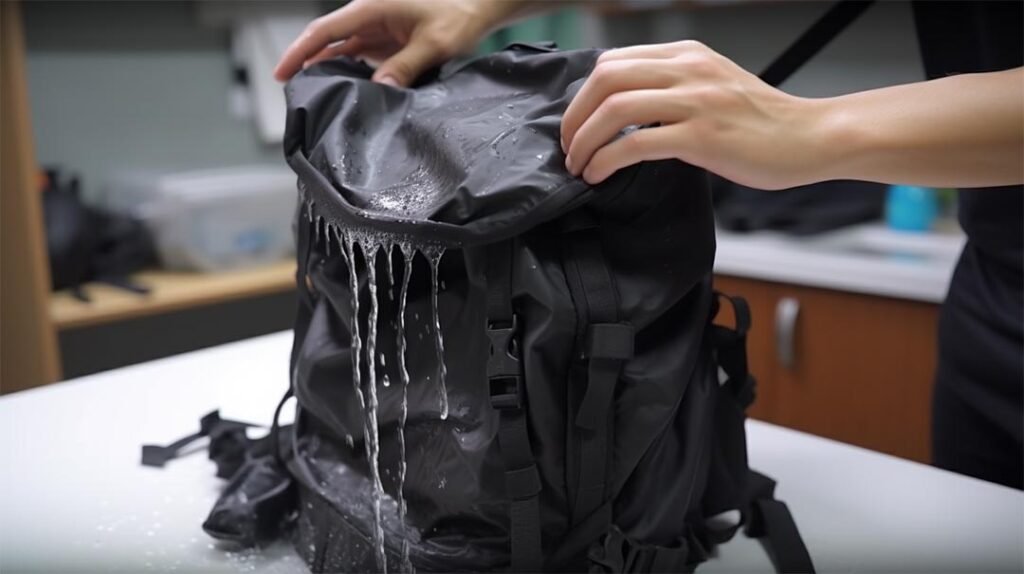
Choosing the Right Backpack
Before diving into maintenance tips, it’s essential to choose the right backpack for your needs.
Factors such as size, material, comfort, and intended use play a significant role in determining the longevity of your backpack.
Opt for a backpack made of durable materials like nylon or polyester, with reinforced seams and sturdy zippers.
Additionally, consider the size and capacity that suits your requirements without compromising comfort.
Cleaning and Washing the Backpack
1.Removing Dirt and Stains:
Regular cleaning prevents dirt buildup, which can lead to damage. Use a soft brush or damp cloth to gently scrub away surface dirt.
For stubborn stains, mild soap or a mixture of water and vinegar can be effective.
2.Hand Washing vs. Machine Washing:
While some backpacks are machine washable, it’s generally safer to hand wash them.
Follow the manufacturer’s instructions regarding cleaning methods to avoid any potential damage.
If machine washing is recommended, place the backpack in a laundry bag or pillowcase to protect it from agitators.
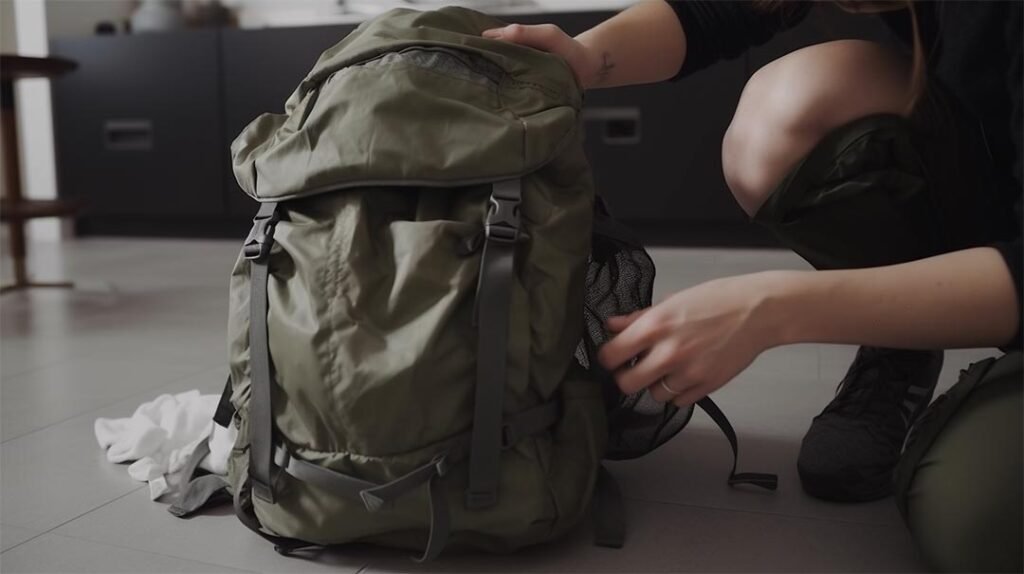
Drying the Backpack
After cleaning, proper drying is crucial to prevent mold or mildew growth and maintain the backpack’s structural integrity.
1.Air Drying:
Hang the backpack in a well-ventilated area, preferably outdoors, away from direct sunlight. Ensure all compartments are open and allow it to air dry naturally.
2.Machine Drying:
If the manufacturer permits machine drying, use a low heat or delicate setting. Again, placing the backpack in a laundry bag or pillowcase will provide an extra layer of protection.
Repairing Small Damages
Regular wear and tear can result in small damages that, if left unattended, can worsen over time. Here are some steps to repair minor issues:
1.Fixing Loose Threads and Seams:
Use a needle and strong thread to stitch loose threads or reinforce weak seams. This prevents further unraveling and strengthens the backpack’s construction.
2.Replacing Broken Zippers:
A faulty zipper can render a backpack unusable. Replace broken or stuck zippers promptly to ensure easy access and secure closure.
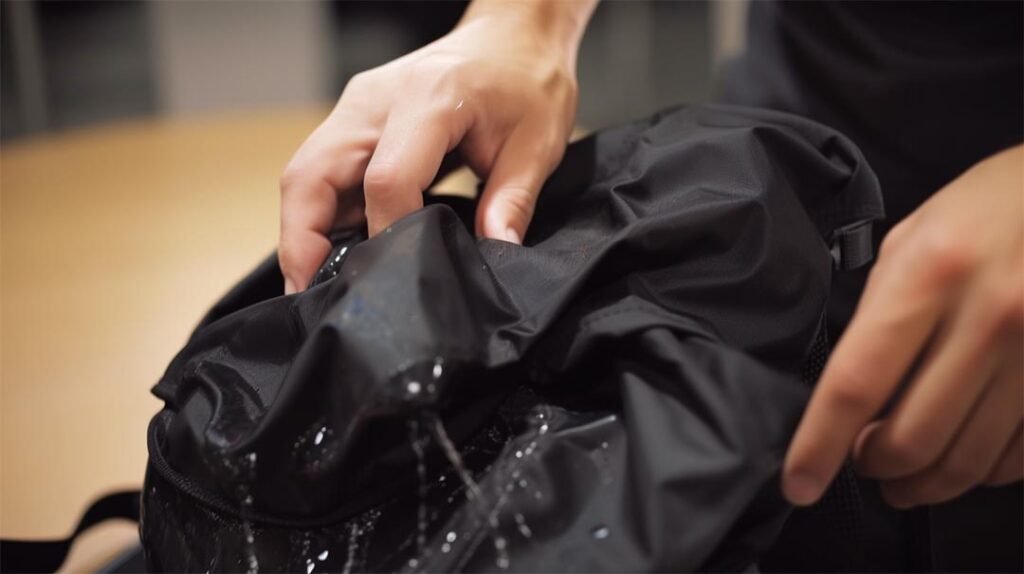
Waterproofing the Backpack
Water damage can significantly impact a backpack’s lifespan. Protect your backpack from rain and other water-related mishaps by applying a waterproofing spray or coating. Follow the product instructions for best results.
Storing the Backpack
Proper storage techniques help preserve the backpack’s shape and prevent unnecessary stress on its materials.
1.Empty the Backpack:
Remove all items from the backpack before storing it. This prevents deformation and avoids unpleasant odors caused by trapped moisture or food crumbs.
2.Avoid Compression:
Store the backpack in a dry place without compressing it. Avoid heavy objects placed on top of it, as they can cause deformation.
Maintaining the Backpack Straps and Handles
The straps and handles of a backpack endure the most stress. Regularly inspect and maintain these crucial components to ensure their longevity.
1.Checking for Wear and Tear:
Look for signs of fraying, tearing, or stretching in the straps and handles. Replace them promptly if significant damage is observed.
2.Reinforcing Weak Areas:
Apply fabric glue or use a needle and thread to reinforce weak spots in the straps and handles. This strengthens their integrity and prevents further damage.
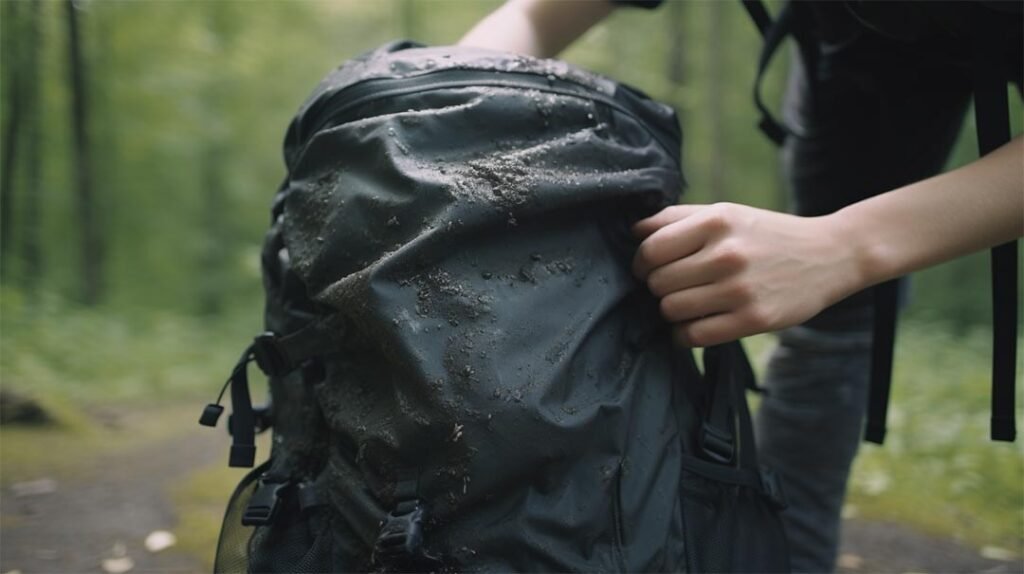
Maintaining the Backpack's Interior
A well-organized interior not only protects your belongings but also enhances the backpack’s durability.
1.Organizing and Decluttering:
Use compartments, pouches, or packing cubes to keep items separated and prevent them from shifting during use. Regularly declutter and remove unnecessary items to reduce strain on the backpack’s materials.
2.Using Protective Pouches:
Store items that may cause scratches or damage in protective pouches. This includes sharp objects, electronic devices, or liquids that could leak.
Avoiding Excessive Weight
Overloading your backpack puts excessive strain on its materials, zippers, and seams, leading to potential damage or failure.Distribute the weight evenly and carry only essential items to prevent unnecessary stress.
Avoiding Harsh Environments
Extreme weather conditions, such as heavy rain, extreme heat, or prolonged sun exposure, can deteriorate a backpack’s materials. Whenever possible, shield your backpack from such harsh environments to maintain its durability.
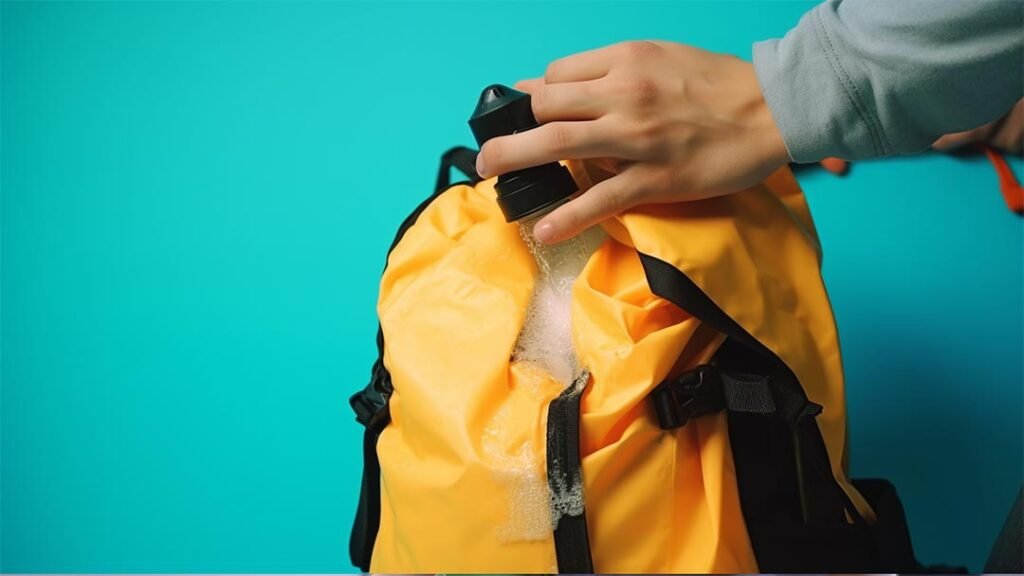
Regular Inspections and Maintenance
Periodically inspect your backpack for any signs of wear, damage, or loose components. By catching and addressing potential issues early on, you can prevent them from worsening and extend your backpack’s lifespan.
Extending the Backpack's Lifespan
To ensure your backpack remains durable throughout its life, consider implementing these long-term care and preventive measures:
- Avoid dragging or throwing your backpack.
- Follow specific care instructions provided by the manufacturer.
- Use a backpack rain cover during wet weather conditions.
- Store your backpack away from direct sunlight when not in use.
- Avoid exposure to chemicals, solvents, or abrasive substances.
Frequently Asked Questions
Can I machine wash any backpack?
Not all backpacks are suitable for machine washing. Refer to the manufacturer's instructions for the specific cleaning recommendations.
How often should I clean my backpack?
Cleaning frequency depends on usage. As a general guideline, aim to clean your backpack every few months or when it becomes visibly dirty.
Can I use regular soap for cleaning my backpack?
Mild soap or a mixture of water and vinegar is usually safe for cleaning backpacks. Avoid harsh detergents or bleach, as they can damage the materials.
How do I remove odors from my backpack?
Air out your backpack in a well-ventilated area, sprinkle baking soda inside, or use odor-eliminating sprays designed for fabrics.
Is it necessary to waterproof my backpack?
Waterproofing your backpack is recommended, especially if you plan to use it in rainy or wet conditions. It provides an extra layer of protection against water damage.
Conclusion
Maintaining a backpack is essential for its longevity and durability.
By following the outlined steps, including cleaning, repairing, waterproofing, and proper storage, you can ensure your backpack remains in excellent condition for years to come.
Regular inspections, preventive measures, and avoiding excessive weight or harsh environments will further extend its lifespan.
With proper care, your backpack will continue to be a reliable companion on all your adventures.
Contact us today to customize your own backpacks!
Consult your customization specialist for messenger bags and traditional backpacks
We help you avoid the pitfalls to deliver the quality and value your backpack needs, on-time and on-budget.
